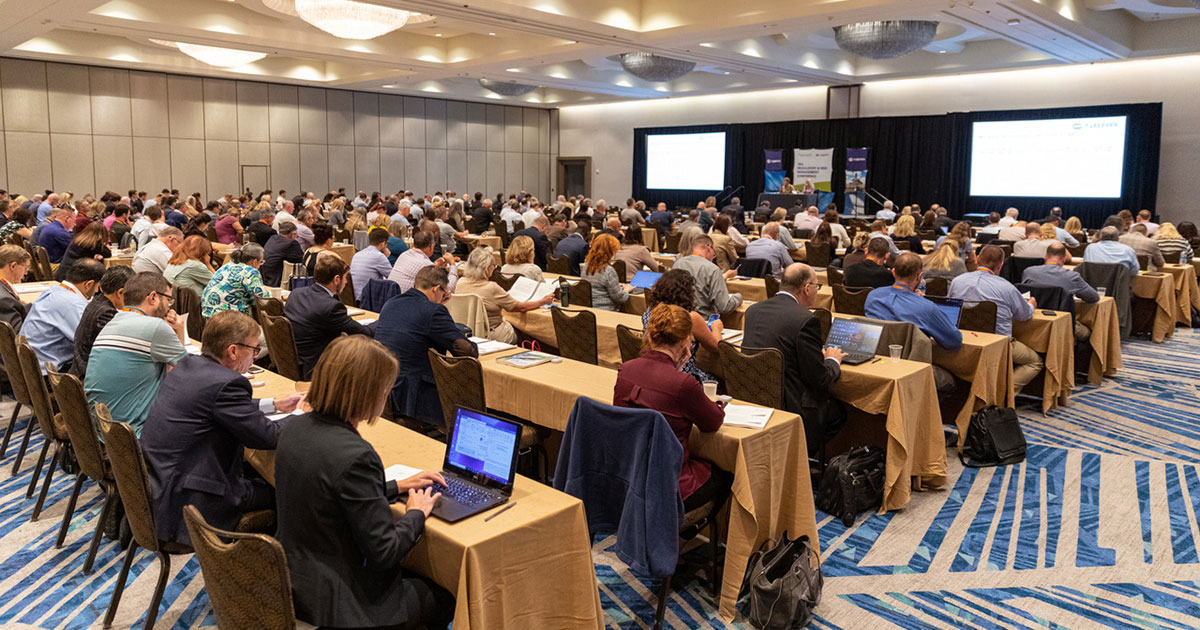NBAA Tax Conference Examines Non-Business Use of Aircraft

Oct. 16, 2022
Flight departments continually grapple with the taxation and regulatory complexities involved when making a business aircraft available to company executives and employees for non-business purposes. The 2022 NBAA Tax, Regulatory & Risk Management Conference offered an overview Sunday of frequent questions associated with determining the nature of trips onboard company aircraft.
The conference, which continues through Oct. 17, took place in advance of this week’s 2022 NBAA Business Aviation Convention & Exhibition (NBAA-BACE) in Orlando, FL.
Proper classification of each person onboard and the overall nature of the flight – for business use, business entertainment use, personal entertainment use or personal non-entertainment use – is crucial in determining allowed deductions or disallowances and applicable Standard Industry Fare Level (SIFL) costs.
“Personal entertainment is the most detrimental to the company as they cannot take a deduction from it,” said session co-presenter Sue Folkringa, a taxologist with Aviation CPAs. “Personal, non-entertainment is a middle ground of sorts… It’s for some other business from the company that owns the aircraft,” such as an executive traveling to a wedding, or to a meeting of a charity board on which they serve.
What Defines Business Entertainment Use?
Identifying business entertainment use of an aircraft can also be challenging. “If the individual traveled to entertain clients, or to secure new business, their mission was for a business purpose,” said co-presenter Ruth Wimer with Winston and Strawn LLP. “There will be no SIFL and costs will be disallowed.”
Audience members had many questions for the presenters, including how classification of business commuting travel has changed in the aftermath of COVID-19, especially because many executives now work remotely.
“There’s no change in commuting guidance, but there will be a change regarding primary work location,” Wimer explained. “If the CEO works [from home] and sustains that as their primary work location, where they go from there to any other business location will be a business trip.”
Who Bears Responsibility?
Another popular question concerned who at the company should bear responsibility for classifying aircraft use. “Having worked with flight departments a lot, I can tell you they are virtually always tasked with providing that information,” Wimer said.
Security concerns may also factor into categorization of a given flight. While one may think of security in the context of high-profile political figures or famous persons in the entertainment business, “increasingly we’ve seen threats on executives’ lives, not the least of which come from the employees within that company,” Wimer said.
Do Dogs Legally Count as Passengers?
In a more lighthearted moment, Folkringa polled the audience to ask if dogs are legally considered passengers onboard an aircraft.
While the answer may seem obvious even to the most ardent canine devotees, “You’d be surprised,” she laughed. “Over the last couple of years, we’ve seen dog names showing up as passengers. Sometimes you need to ask the question, ‘is Deezy, no-last-name a person?’”
Additional guidance is available in the recently updated NBAA Personal Use of Business Aircraft Handbook. This comprehensive resource details rules companies should use to calculate the amount of taxable fringe benefit to report to employees, directors and independent contractors who use a company-provided aircraft for non-business flights.
Any person who attends an NBAA convention, conference, seminar or other program grants permission to NBAA, its employees and agents (collectively "NBAA") to record his or her visual/audio images, including, but not limited to, photographs, digital images, voices, sound or video recordings, audio clips, or accompanying written descriptions, and, without notifying such person, to use his or her name and such images for any purpose of NBAA, including advertisements for NBAA and its programs.
Related Articles
February 29, 2024
NBAA News Hour: Experts Unpack IRS Plan to Audit Companies Using Business Aircraft
February 22, 2024
NBAA Questions Sweeping IRS Plan to Audit Business Aircraft Use
December 15, 2023
NBAA Welcomes Decision from Treasury on Sustainable Aviation Fuel Tax Credit; Eager for Remaining Guidance
November 13, 2023


 International Business Aviation Council Ltd.
International Business Aviation Council Ltd.